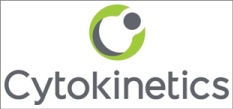Biogen, Cytokinetics and Origent Unveil Latest ALS Research Efforts at AAN 2016 Meeting

 This year’s ALS Association-sponsored Drug Company Working Group meeting — to review recent trial results and discuss new developments in the search for ALS treatments — was held in April as part of the 68th American Academy of Neurology (AAN) Annual Meeting in Vancouver, Canada, the world’s largest gathering of neurologists, with 12,000 attendees and more than 2,700 scientific presentations.
This year’s ALS Association-sponsored Drug Company Working Group meeting — to review recent trial results and discuss new developments in the search for ALS treatments — was held in April as part of the 68th American Academy of Neurology (AAN) Annual Meeting in Vancouver, Canada, the world’s largest gathering of neurologists, with 12,000 attendees and more than 2,700 scientific presentations.
Presentations included discussion of two new trials by Jinsy Andrews, MD, MSc, senior director of Clinical Research and Development and head of Neuromuscular Therapeutics at Cytokinetics, and by Elizabeth McNeil, MD, MSc, senior medical director of Clinical Research and Development and head of Neuromuscular Therapeutics at Biogen.
A machine learning approach to understanding ALS was presented by David Ennist, PhD, MBA, chief science officer and member of Founding Management Team at Origent Data Sciences, Inc., and Ammar Al-Chalabi, PhD, FRCP, a professor of Neurology and Complex Disease Genetics and a consultant neurologist at Kings College London, offered insights into the complex genetics of ALS.
Work Group meetings provide a forum for discussion of ALS research and therapy development, and help to establish academic-industry collaboration to advance scientific knowledge pertaining to ALS, a progressive neurodegenerative disease that affects nerve cells in the brain and the spinal cord, typically leading to paralysis, and to death within two to five years of diagnosis. Among the disease’s challenges: Veterans, for reasons unknown, are twice as likely to develop ALS as the general population. And only one drug has been approved by the U.S. Food and Drug Administration (FDA) to treat ALS, and modestly extends survival.
Al-Chalabi Is the Sheila Essey Award Recipient
 Kings College’s Dr. Al-Chalabi, recipient of this year’s $50,000 American Academy of Neurology Sheila Essey Award for ALS Research to acknowledge individuals actively engaged in ALS research and making significant contributions to the disease’s cause, treatment, prevention or cure, addressed what is known and not known about the genetic contribution to ALS. “Much of what we thought we knew about ALS twenty years ago, we now realize is wrong,” said Dr. Al-Chalabi, “including the idea that it is one disease. Discovery of several critically important genes, which cause the disease through different mechanisms, has shown that to be incorrect. And there are likely many more genes yet to be found. ALS genetics is advancing rapidly, and understanding more about the genes involved will allow us to develop new therapies.”
Kings College’s Dr. Al-Chalabi, recipient of this year’s $50,000 American Academy of Neurology Sheila Essey Award for ALS Research to acknowledge individuals actively engaged in ALS research and making significant contributions to the disease’s cause, treatment, prevention or cure, addressed what is known and not known about the genetic contribution to ALS. “Much of what we thought we knew about ALS twenty years ago, we now realize is wrong,” said Dr. Al-Chalabi, “including the idea that it is one disease. Discovery of several critically important genes, which cause the disease through different mechanisms, has shown that to be incorrect. And there are likely many more genes yet to be found. ALS genetics is advancing rapidly, and understanding more about the genes involved will allow us to develop new therapies.”
“I am very honored to receive the Sheila Essey Award and I am grateful to my research team and colleagues who make our ALS research possible,” he added. You can find more detail about Dr. Al-Chalabi, his research, and the Sheila Essey Award here.
ALS Drug Candidate Tirasemtiv to be Tested in Large Phase 3 Trial
 Cytokinetics’ Jinsy Andrews provided an update on tirasemtiv, the calcium activator for muscle that appears to be a promising candidate for symptomatic treatment of ALS. The drug increases the force of muscle contraction, especially at low levels of muscle stimulation, allowing a person with ALS to perform daily activities with less effort. Results from short-term trials have looked encouraging, although side effects have prevented some people from continuing with the treatment.
Cytokinetics’ Jinsy Andrews provided an update on tirasemtiv, the calcium activator for muscle that appears to be a promising candidate for symptomatic treatment of ALS. The drug increases the force of muscle contraction, especially at low levels of muscle stimulation, allowing a person with ALS to perform daily activities with less effort. Results from short-term trials have looked encouraging, although side effects have prevented some people from continuing with the treatment.
 A new Cytokinetics-sponsored clinical trial, called VITALITY-ALS (“Ventilatory Investigation of Tirasemtiv and Assessment of Longitudinal Indices After Treatment for a Year,” NCT02496767), began in July 2015 to assess the effect of tirasemtiv versus placebo on respiratory function in patients with ALS. The trial, which is expected to complete enrollment in 2016, is being conducted at ALS centers across the United States and Canada, as well as in several European countries.
A new Cytokinetics-sponsored clinical trial, called VITALITY-ALS (“Ventilatory Investigation of Tirasemtiv and Assessment of Longitudinal Indices After Treatment for a Year,” NCT02496767), began in July 2015 to assess the effect of tirasemtiv versus placebo on respiratory function in patients with ALS. The trial, which is expected to complete enrollment in 2016, is being conducted at ALS centers across the United States and Canada, as well as in several European countries.
The trial follows the BENEFIT-ALS trial, “A Phase IIb, Multi-National, Double-Blind, Randomized, Placebo-Controlled Study to Evaluate the Safety, Tolerability and Efficacy of CK-2017357 in Patients With Amyotrophic Lateral Sclerosis (ALS)” (NCT01709149), in which 12 weeks of treatment led to better performance on slow vital capacity (SVC) versus placebo in a large group of patients. SVC is a measure of respiratory function. Dr. Andrews noted that evidence from the BENEFIT-ALS trial suggested that slowing the decline of SVC predicted would reduce the risk of other clinically meaningful outcomes as well, but a longer and larger trial was needed for confirmation. This is the intent of the VITALITY-ALS study — a 48-week, placebo-controlled study with an opening two-week, open-label run-in period. She said that previous experience has shown that common early adverse events (principally dizziness, fatigue, and nausea) limit the drug’s tolerability, but these effects lessen over time. A run-in period is designed to reduce the number of trial participants who have to withdraw due to these events, while better ensuring that those who continue are able to tolerate increasing drug doses. Increases will be slower and more flexible than in previous trials, which should also increase the drug’s tolerability, with an off-drug observation period at the trial’s end to rule out any rebound worsening effect.
Dr. Andrews said that overall, an enrolled patient will be involved for 14 months, and as in the previous BENEFIT-ALS trial, those taking riluzole will have their dose reduced, because tirasemtiv increases the potency of a given dose of riluzole by slowing its metabolism. Further details on the trial can be found here.
Methodology Study Will Compare Outcome Measures to Speed Trials
 In her presentation, Biogen’s Dr. McNeil outlined an ambitious new trial testing ALS outcome measures called the “Methodology Study of Novel Outcome Measures to Assess Progression of ALS“ (NCT02611674). Its primary objectives are to estimate and rank-order longitudinal standardized mean changes, over six months and 12 months, to identify measures that are more sensitive to disease progression, comparing outcome measures head-to-head and against the gold standard, the ALS Functional Rating Scale-Revised (ALSFRS-R). The goal is to find measures that are reliable, easy to administer, and show evidence of change in a shorter time than the ALSFRS.
In her presentation, Biogen’s Dr. McNeil outlined an ambitious new trial testing ALS outcome measures called the “Methodology Study of Novel Outcome Measures to Assess Progression of ALS“ (NCT02611674). Its primary objectives are to estimate and rank-order longitudinal standardized mean changes, over six months and 12 months, to identify measures that are more sensitive to disease progression, comparing outcome measures head-to-head and against the gold standard, the ALS Functional Rating Scale-Revised (ALSFRS-R). The goal is to find measures that are reliable, easy to administer, and show evidence of change in a shorter time than the ALSFRS.
 “The ALSFRS wasn’t developed for use in phase II trials which are smaller and ideally shorter than the phase III trials needed for final drug approval,” Dr. McNeil said. “A phase II trial is designed to test a drug’s safety, find a potentially useful dose and determine if the drug is hitting its target, (i.e. reaching the intended cells and affecting the molecules there in the expected way). While the ALSFRS is an important measure of overall function, it doesn’t have the precision over the short term that is needed for short phase II trials.”
“The ALSFRS wasn’t developed for use in phase II trials which are smaller and ideally shorter than the phase III trials needed for final drug approval,” Dr. McNeil said. “A phase II trial is designed to test a drug’s safety, find a potentially useful dose and determine if the drug is hitting its target, (i.e. reaching the intended cells and affecting the molecules there in the expected way). While the ALSFRS is an important measure of overall function, it doesn’t have the precision over the short term that is needed for short phase II trials.”
Dr. McNeil noted that measures to be tested in the upcoming study include various tests of muscle electrophysiology, muscle strength, respiratory function, and imaging of the spinal cord. “Our goal is to find which of these will change significantly over a short time frame,” she said, “and to find those with the greatest predictive value.”
The study will enroll 200 patients at centers throughout the United States, Canada, and Europe. Patients are eligible if they are within two years of diagnosis and have a forced vital capacity (FVC) of at least 50 percent of predicted (a standard respiratory measure).
“Our hope is to then use the most responsive measure or measures in upcoming phase II trials,” Dr. McNeil said, “including the Biogen-sponsored trial of antisense against the SOD1 gene, which is underway.” More details about the methodology study can be found here.
Prediction Algorithms Aim to Speed Clinical Trials
Accurate predictors of function and survival is important both for clinical trials and individuals with ALS, the ALS Association says. For people, it may mean knowing better what lies ahead, often the most challenging aspect of early ALS planning. In the context of clinical trials, more accurate predictors would allow groups of patients to be stratified by rates of progression, so that new treatments could be tested separately in groups presenting with faster or slower progression, reducing the noise of clinical measurements and allowing treatment benefit signals to emerge more clearly.
 Origent Data Sciences has developed computational tools to help make those predictions. The company was the winner of the DREAM Phil Bowen ALS Prediction Prize4Life Challenge, in which groups competed to develop a tool that could predict progression based on baseline clinical data. Data for the challenge were drawn from the ProAct database, a combination of patient data from multiple large clinical trials in ALS.
Origent Data Sciences has developed computational tools to help make those predictions. The company was the winner of the DREAM Phil Bowen ALS Prediction Prize4Life Challenge, in which groups competed to develop a tool that could predict progression based on baseline clinical data. Data for the challenge were drawn from the ProAct database, a combination of patient data from multiple large clinical trials in ALS.
Origent was spun off from Sentrana, Inc., a marketing analysis firm which uses detailed information about customer behavior to make predictions about future purchases. The idea that by accumulating the right information, accurate predictions can be made about the future, is the basis of Origent’s prediction algorithms.
 “The prediction algorithms are developed using machine learning tools,” said Dr. Ennist, Origent’s CSO. “The tools don’t really try to understand nature and make no assumptions about the disease. Instead, we let our algorithms find the eventual path to the outcome measure through trial, error, refinement and repetition.” By testing many different possibilities, the algorithms eventually come up with one that tightly predicts actual outcome from initial clinical variables, such as respiratory function or ALSFRS score.
“The prediction algorithms are developed using machine learning tools,” said Dr. Ennist, Origent’s CSO. “The tools don’t really try to understand nature and make no assumptions about the disease. Instead, we let our algorithms find the eventual path to the outcome measure through trial, error, refinement and repetition.” By testing many different possibilities, the algorithms eventually come up with one that tightly predicts actual outcome from initial clinical variables, such as respiratory function or ALSFRS score.
The algorithms can then be used in trials to develop sets of virtual controls that may one day take the place of a placebo group. In that scenario, data from patients receiving treatment would be used to develop predictions about how each patient is likely to progress without treatment, and actual progression could be measured and compared to the prediction to determine treatment benefit.
In March, Origent and Cytokinetics announced a research collaboration to refine and prospectively validate an Origent computer model to predict the course of ALS disease progression, leveraging data from the Cytokinetics clinical trials of tirasemtiv. Funded by Origent’s receipt of a grant from The ALS Association, this program will enable the first prospective validation of the predictive model in a clinical trial setting.
“This unique collaboration between Origent Data Sciences, Cytokinetics and The ALS Association reflects another step in our collective efforts to accelerate the clinical trial process and make new medicines available to people with ALS in desperate need of new therapeutic options,” Dr. Andrews said. “We are pleased to join with Origent to potentially validate their predictive model using datasets from BENEFIT-ALS and VITALITY-ALS, which we hope may then facilitate the use of this novel technology to positively impact the design and conduct of future ALS clinical trials.”
 “We are extremely excited to see this collaboration get underway,” said the ALS Association’s chief scientist, Lucie Bruijn, PhD, MBA. “This tool has the potential to accelerate clinical trials for ALS and the Cytokinetics Phase 3 trial provides an excellent opportunity to validate the disease progression algorithm.”
“We are extremely excited to see this collaboration get underway,” said the ALS Association’s chief scientist, Lucie Bruijn, PhD, MBA. “This tool has the potential to accelerate clinical trials for ALS and the Cytokinetics Phase 3 trial provides an excellent opportunity to validate the disease progression algorithm.”
 “We are in a time of great hope in ALS therapy development, said the ALS Association’s president, Barbara Newhouse, speaking to the Drug Company Working Group in Vancouver. “The efforts highlighted here are poised to accelerate progress in clinical trials and to bring new treatments to people living with ALS.”
“We are in a time of great hope in ALS therapy development, said the ALS Association’s president, Barbara Newhouse, speaking to the Drug Company Working Group in Vancouver. “The efforts highlighted here are poised to accelerate progress in clinical trials and to bring new treatments to people living with ALS.”
For more information about The ALS Association, visit the website at: www.alsa.org
Sources:
The ALS Association
Drug Company Working Group
Origent Data Sciences Inc.
Cytokinetics
ClinicalTrials.gov







